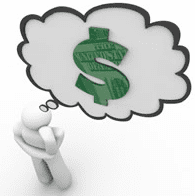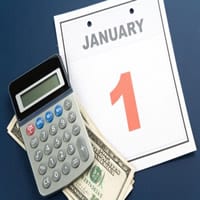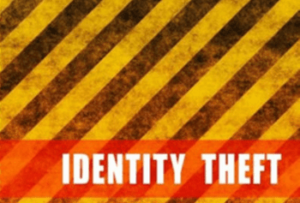
We all hear about the college students and the money mistakes they made while in college. I was one of them. This article from US News shares the top six mistakes and gives you ideas to think about. Read more
Tips for Successful Personal Finances

We all hear about the college students and the money mistakes they made while in college. I was one of them. This article from US News shares the top six mistakes and gives you ideas to think about. Read more
Valentine’s Day is a day when we exchange gifts, have a special meal and more with the person we love. Usually all is well and life goes on. 
In honor of Valentine’s Day, I want to talk to you about love and money. I have known many couples who were in love until they found out about the other person’s money habits.
Your money incompatibility doesn’t have to end the relationship. If this is the one, you can make it work. You just have to ask the right questions.
This is what you need to know about each other:
With this information, you can decide if you want to keep your finances together or separate. Joining your bank accounts together with someone who has ignored debt or back taxes may mean your money is at risk (even if it’s not your obligation), and in the end, puts you both in the same deep hole with no way out.
Finances can be the doom of relationships. Being informed and making proactive choices is the best way to make the relationship work.
 It ‘s that time of year. Your teens are making their college choices for the fall and all the excitement that goes with it. What school should they go to? Will they stay near or go far? What will I need to do next?
It ‘s that time of year. Your teens are making their college choices for the fall and all the excitement that goes with it. What school should they go to? Will they stay near or go far? What will I need to do next?
First let ‘s start with the paying for college. If you have the money saved for the cost of college for all four years (or more), then you can stop reading. If not, you need to start or continue to figure out the finances. FAFSA – Free Application for Federal Student Aid – is the first step. Apply now, even if you don’t think you qualify – you may be surprised.
Here is a great article by Consumer Reports for financial aid that will tell you what you need to know.
January has been a month of me asking questions. You may be thinking what is she talking about. Lots of items came to light throughout the month that required more information. Here is a sampling of what came up:
Never be afraid or think your questions aren’t worthy of an answer. In my case, it’s my money. Call and ask questions until you are satisfied with the answers.
For me, I was able to save money on our auto insurance after a lengthy phone call, the medical insurance company paid the bloodwork bill in full after appeal, the doctors bill was adjusted and I owed less than 50% of the bill and I am still working to understand resolve the paycheck issue. So far, I with these questions we have saved close to $300. That’s worth my time and efforts.

Welcome to 2019!
I hope you had a great holiday and are looking forward to another year beginning.
2018 was a challenging year. The Federal reserve raised interests rates four times – yikes! The stock market lost all of it’s gains for the year. What does that mean to you? Rising interest can mean larger monthly payments. Stock market loses could mean less money for retirement. Let’s talk about what rising interest rates means to your wallet.
Mortgages / Home Equity Lines
Do you have a fixed or variable interest rate on your mortgage? If you have a variable rate, that could mean your interest rate could go up. For an adjustable rate first mortgages, they typically change at a certain point (see you mortgage documents), but most home equity lines of credit change as interest rates change. High interest rates means larger payment is due. This might be the time to modify to refinance to a fixed rate.
Credit Cards
Most credit cards typically have variable interest rates. High interest means a larger minimum payment is due. If you carry a balance from month to month, you may want to transfer your debt to a zero or lower interest rate credit card while you are paying down your debt.
You never know what is going to happen, so you need to be prepared for whatever life throws at you. Be proactive and your debt paid off, so that interest rate hikes won’t hurt your finances.
You see the TV ads that save your can save money with your insurance. But can you?
I have always been told that if you bundle your insurance – say car and homeowners or car and renters – you can save money. This study breaks it down by state on how much you could possibly save. Read more
For more tips, visit my website.
October is National Financial Planning month!
According to Wallet Hub, 2 out of 5 US adults grade themselves as a “C” or worse on their personal finance knowledge. To see the report and find out where your state stands, click here.
It’s never too late to learn about personal finances. Start by reading something each and every day. Check out my newsletter past issues and sign up to receive, Money Choices it in your inbox.

Well it happened again – this time EquiFax! This is not the first time nor will it be the last security breach.
Here are some suggestions that you may want to take to help to protect your identity:
• Personally, I am not a fan of doing banking on my phone, so I don’t have these apps. But I do have many texts (one for each transaction) and this way, I can catch anything immediately. I will be adding my credit cards to this process.
• In addition, I use two-step authentication for all my accounts. Having a code either texted or phoned to me to use to access my account.
• Check your credit report. I am a firm believer of this and now even more so. If you need reminders to check your credit for free three times per year, sign up for my newsletter here and you will get email reminders to check your credit every four months.
• Monitor your accounts. I typically check in a couple of times a month, both my bank and credit card accounts just to look for anything that I don’t recognize. If you don’t want to do this, make sure you reconcile your accounts monthly.
• You may want to set up credit monitoring service and/or freeze your credit report. You can check out my article on Credit Freeze here.
• Change your passwords regularly.They shouldn’t be easy to guess (use a combination of upper and lower case letters, number and symbols) and don’t you use the same password. Each account should have its’ own individual one.
Take the time now to protect your identity. It’s much easier to do this proactively than to deal with the turmoil of identity theft later.
Save
Save
I love getting a discount. Don’t you?
When we grocery shop, we use coupons, meal plan and shop the sales. We eat healthy with any organic products, so there aren’t as many coupons as in the past. Yes, items do go on sale, but it can still be expensive.
Our grocery store gives us gas points. For every dollar we spend, we get points – 100 points is 10¢ off per gallon. Last weekend we saved 90¢ per gallon. That certainly helps our budget and can helpful to you.
Are you getting all the rewards possible? Learn more on discounts and rewards.
What are the things you are willing to do without or do differently?
In our household, we do our own yardwork and save by not having to pay for a lawn or snowplowing service. The trade off is that it takes time to do these tasks and we had to purchase the lawn mower, weed wacker and snow blower. This can be a big initial expense. But, we don’t have monthly bills.
Our town has private trash collectors, that’s another monthly bill. We take our own trash to the transfer station and eliminated that bill years ago.
What are you willing to do or doing that have helped your finances?
For more tips, please visit my website.